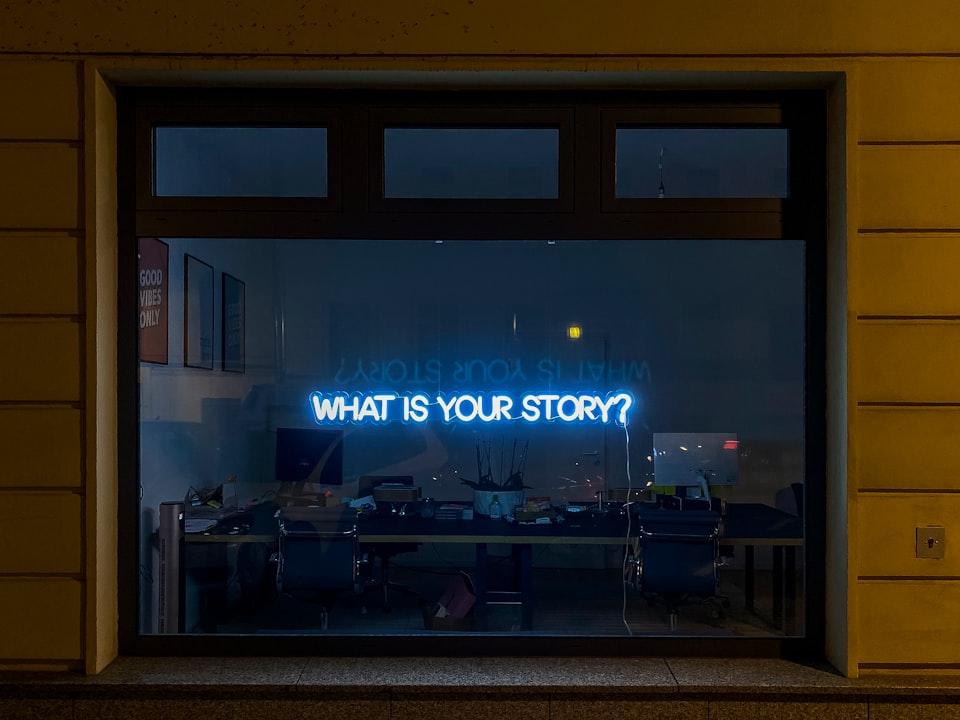Hello! You are reading my 52nd post in as many weeks. Writing-wise, it's been a roller coaster ride of a year and incredibly challenging. I wanted to write this post to document the last 52 weeks, the lessons I learned, the challenges I faced, and the things I wish to improve going forward. Here's a recap of my writing journey in case I need it in the future.
Lessons
Ideation and Consumption Systems
The essential writing insight I learned early on is that nobody always has ideas; even if we do, we tend to forget them. I learned that anybody trying to express themselves through creative means has systems for Ideation and Consumption.
Ideation is the process of having and formulating ideas. Consumption is the process of feeding the ideation system. Ideation and Consumption are on a loop, and they feed each other. I learned that our brain is for having ideas, not storing them. So, I needed a system to store the ideas that come to my mind and a system to consume content that would enable me to have ideas.
There is glory in simplicity. My ideation system consists of a simple note-taking app where I dump my ideas. Writer's block is real, and I can't count the number of times I was staring at a blank screen, waiting for some magic to happen. Sometimes, it does happen, but it's unreliable. I took a free writing workshop from David Perell, where an insight helped me tremendously. The insight was to "Start from abundance." When you have a note-taking system in place, there are multiple benefits to it.
- When staring at a blank screen, there's always a place to fall back on.
- It frees your mind to have new ideas, and you don't have to remember them. Our brain is for having ideas, not storing them.
- The ideas we might have may belong to areas you don't know much about. The ideation system or the "idea notebook" (Nick Miller fans assemble) gives you some points to consume content on the internet specific to your ideas.
That brings me to the Consumption System. For a beginner like me who doesn't know what they want to write about, it's essential to have a consumption system that feeds your brain. You tend to write what you consume, so it's vital to consume content that will let you explore the ideas that you want to write. See the Ideation-Consumption loop I'm talking about? It may sound not easy, but the Consumption System is just a bunch of sources of information you derive your ideas from. My Consumption System is four-fold: Books, Podcasts, YouTube, and Social Media. Check out my "Best-of" series of posts to get a whiff of what I consume in these areas — Best of Twitter, Best of Instagram, Best of Podcasts, Best of YouTube, Best of Books, Best of Books #2.
Content Curation
I have talked about content curation quite a bit in my posts, but this is the best place to reiterate it. Social media, YouTube, etc., can be powerful tools if you learn to curate the content you consume on these platforms. Content Curation is all about constantly updating the people you follow on these platforms. I don't have a planned curation cadence, but whenever I feel someone's content is not fulfilling and entertaining enough for me, I unfollow them. Similarly, when I see a recommended post, a story, or a reel that I think I like, I check out more content from them and decide if I want to follow their work.
Many creators on these platforms produce similar kinds of content in different ways, and it's important to follow someone who aligns with your style. The same goes for me too, and I'd be okay if someone replaced me with another writer who vibes better with them. As a creator/artist/writer, it is easy to get hung up on the number of followers or the number of article views. Still, I learned that the numbers would take care of themselves if I focused on creating quality content while adapting and learning new writing methods while sticking to some core guidelines.
Grammar and Vocabulary
Speaking of core guidelines, if there are any pillars of quality writing, they are grammar and vocabulary. As for grammar, it's essential to pay attention to how you speak and write in your daily life, like conversations with friends and colleagues, while writing emails at work, while texting, and so on. Sometimes, I become over-conscious while watching how I speak or take a long time to write a text, but it's okay. We get better with practice, and it's for the greater good. Pay attention to your grammatical errors while typing and speaking. In addition to that, I also got a Grammarly subscription to help me write better and learn some grammar. It was worth every penny. Without Grammarly, I wouldn't have known what an Oxford Comma is. Google it. It's interesting.
As for vocabulary, having a solid vocabulary is not about using long and fancy words to write and speak but about conveying our thoughts and ideas using simple words effectively. Once again, there is glory in simplicity. Believe it or not, it is trickier than it seems. It's a lifelong process, and truth be told, it is something I struggle a lot with. Nowadays, I pay attention to the simplicity of people's communication, whether it's an email, a text, or a conversation.
If your idea requires a lot of words, go for it. Instead, if it could be conveyed in a simple sentence, that's what you should aim for. How to differentiate between the two? I haven't figured that out yet. For now, my goal is to write as simply and effectively as possible.
The Zone and The Process
Another aspect I learned is the focus required to write. Initially, I underestimated its importance, and it's still a steep learning curve. I tried to develop a daily writing habit and stuck to it for around 5-6 months, but I couldn't keep up with it. It was a bit overwhelming, but I will try to get back to it. Nowadays I write only on the weekends. Irrespective of the frequency, the common denominator is the focus or "being in the zone." It is the state of complete focus where you are immersed in what you do. I used to have a lot of struggles to focus on one thing, but writing is something that has helped me focus a lot. I'm still nowhere close to what I expected, but progress is progress.
Feedbacks
No matter what one writes or creates, feedback is critical. I have a few friends who give me honest feedback about my articles. They point out my grammatical mistakes, typos, sentence formation, or debate on the article's topic. My grandmother reads my articles and gives her feedback too. No matter how big or small, frequent or rare, these feedbacks are invaluable. I'm thankful for all your feedback so far.
The things I did right
If I'm satisfied with anything in my writing journey, it's consistency and variety, mainly because they were the two most challenging parts. Consistency is one of the biggest challenges I face in other aspects of my life, but I didn't want to make that slip in this. So I had to make an extra effort to publish every week. The problem of variety has fueled the issue of consistency in the last year.
For example, when I write a post about animals this week, I automatically go into a rabbit hole and start exploring more on the same topic. It's okay to write two consecutive posts on the same topic, but sometimes switching to a different one becomes difficult. In that aspect, I had to put extra effort into switching things up to make myself learn new things. After a year, I'm satisfied with the topics I covered, but I'm looking to expand more.
Challenges & Improvements
Readability and Simplicity
As discussed before, writing content in simple words that everybody can read and understand is much trickier than writing long words with fancy sentences. Because when I'm a reader, I look for simple, understandable sentences. If an article or a book conveys its point simply, it is much more readable than another article that conveys the same concept with long words and fancy sentences.
Apart from readability, simplicity also rides on the vehicle of understanding. Prof. Richard Feynman, one of the most brilliant minds of the twentieth century, believed that if we truly understand something, we should be able to express it in simple words. When asked about explaining a quantum mechanics concept, he replied, "Let me prepare a freshman lecture for it." He returned and said, "You know, I couldn't do it. I couldn't reduce it to the freshman level. That means we really don't understand it." And it was true; we still don't understand quantum mechanics much. Writing about something helped me evaluate how much I understood it. So, if you found some of my articles or explanations confusing or complex, chances are I didn't fully understand them myself. I'm looking to improve in that aspect.
Sentence Length
I came across this recently. Sentence length has got a lot to do with reader engagement. Too many short sentences are equally complex as long sentences. I was blown when I read about this with an example. The ideal way is to write with varied sentence lengths. I will have to learn more about it. Here's the example I saw on Twitter.
If you want to become a writer, read this: pic.twitter.com/wYa8BIspDC
— Alex & Books 📚 (@AlexAndBooks_) January 21, 2023
Formal Training
Above everything else, I haven't had formal training in writing except for a couple of workshops. I'm looking to take a couple of courses and attend more workshops to learn some basics of writing. It could also be a place to meet others writers and listen to their journeys. I could've done that earlier, but better late than never.
Final Thoughts
Overall, I'm content with the progress I made. I have learned a lot, and I have enjoyed the journey so far. I'm looking forward to writing more. As always, thanks for reading. Cheers!

